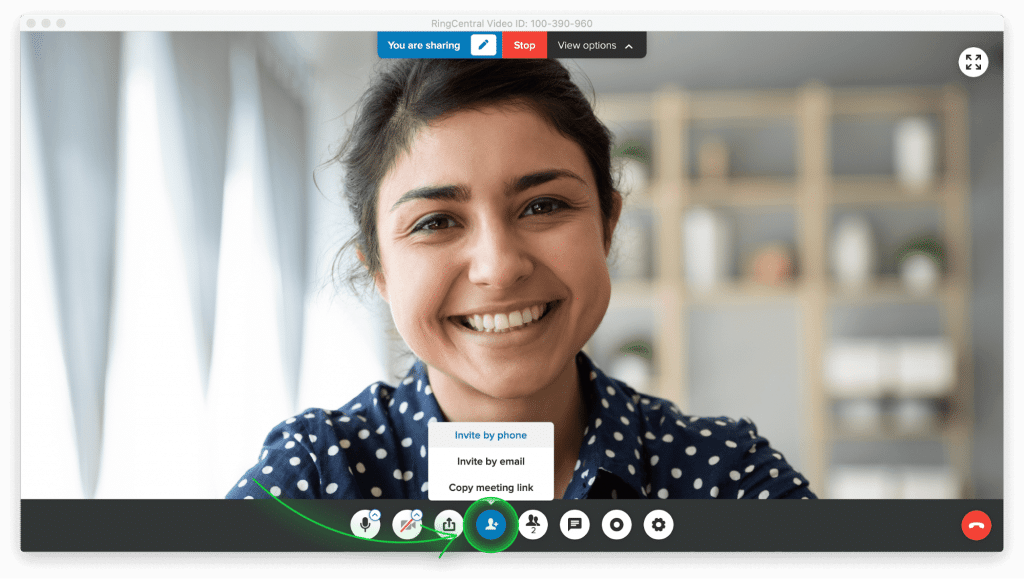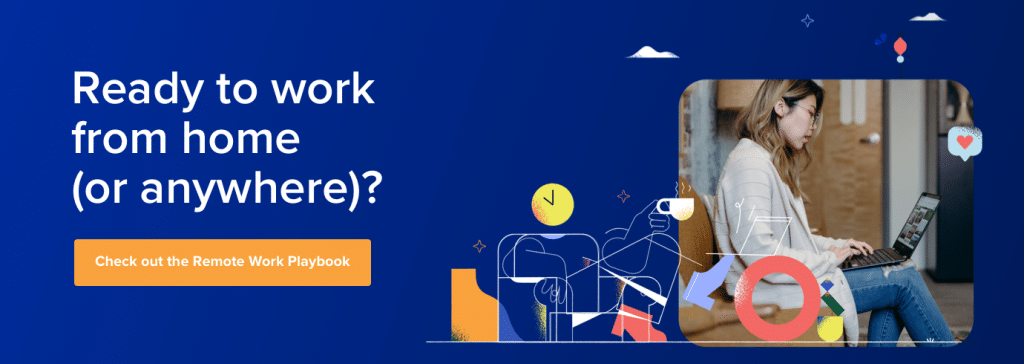You’ve probably heard: our world is quickly moving online.
The legal world is no different. Video conferencing is a tool that’s changing how law is practiced by reducing the need to travel, saving money, and building relationships with clients and other legal professionals.
Essentially, it can give your firm a competitive edge by letting your whole team stay seamlessly connected with each other—and your clients—while increasing productivity and billable hours.
Today, we’re looking at eight ways attorneys can use video conferencing:
- Meet with clients
- Meet with your own team
- Level up with distance learning
- Attend gatherings and seminars
- Hold court arraignments
- Film depositions
- Get expert witnesses into the room
- Prepare your clients (and yourself!)
See how these four law firms from Florida, Chicago, and New York adapted their operations to work from anywhere—while still providing a great client experience. Download the free case study playbook!
8 ways to use video conferencing in law
Having remote meetings over video is pretty common already, but other than just the “it’s more convenient,” factor, there are actually lots of other ways that video conferencing can save you time and money.
Let’s look at a few ways you can implement video conferencing software into your practice.
1. Meet with clients
Video conferencing can be used to meet with clients, wherever they are. Instead of having to travel long distances—and someone will have to pay for that travel—just set up your essential meetings with clients online:

With video meeting software, you can invite your clients to a meeting by phone, email—or just send them a link to join.
🕹️ Get a hands-on look at how RingCentral works by booking a product tour:
2. Meet with your own team
Some of the major firms are made up of hundreds of lawyers, working in different branches, departments, and buildings.
Not to mention, some lawyers are constantly traveling. But even if a firm is spread out and invested in their own cases, lawyers still need to collaborate and meet with each other from time to time.
This is where video conferencing makes collaboration a lot easier. Meetings can happen wherever you or your teams are, from the West Coast to HQ in Manhattan. Hundreds of people can tune into these meetings if there’s a big firm-wide update—and these meetings can happen as often as they need to without you worrying about expenses.
💸 What WFH expenses should you look for when you’re managing your finances? We collaborated with Bench, an online bookkeeping service, to create this guide that’ll come in handy as you’re looking through your business expenses.
3. Level up with distance learning
Continuing education is a great way to stay up to date and improve skills—and is a requirement for lawyers in many jurisdictions. Video conferencing can be immensely helpful for distance learning. Even if it’s just commuting across town to attend in-person sessions, this can eat up a lot of time. With distance learning, you can work and study, without having to travel.
From staying up to date with the ever-changing legal landscape to getting into a new speciality, distance learning can save time and money.
4. Attend gatherings and seminars
Gatherings such as conferences, training seminars, and retreats are great for networking, sharing knowledge, and keeping up to date with the latest in the legal world. Getting to these gatherings, however, can require a lot of planning and funding.
A firm has to figure out how to get its team to one location and pay for things like travel, hotel room, per diems, and so on. Planning an in-person gathering is a whole other undertaking, with even more things to consider like booking a large enough venue and catering.
With video conferencing, the bulk of that planning—and financing—is eliminated. You can attend from wherever you are, and everyone involved can save both time and money.
Learn how law firms can use social media to build stronger client relationships.
5. Hold court arraignments
Having remote court arraignments is a relatively new possibility—and it just might become an industry standard in the future.
With remote court arraignments, thanks to video conferencing, prisoners can “appear” in court without having to be physically transported to and from the court house. This saves the system—you guessed it!—time and money.
Transporting and guarding prisoners to and from courthouses can be both time-consuming and cost-intensive. Lots of tax dollars and human resources go into this process. Instead, these resources can now be put to better use thanks to video conferencing.
6. Film depositions
Video depositions can be super valuable for cases going to court. Unfortunately, legal teams sometimes have to travel long distances to get to their witnesses.
Traveling means you lose valuable time that you could have spent working (and getting paid for)—and it can be a headache to plan.
Now, you can film depositions from anywhere with high-quality video conferencing.
7. Get expert witnesses into the room
Traditionally, expert witnesses have to physically appear in courtrooms. This means—yet again—racking up expenses for travel and accommodations.
Luckily, those costs can be avoided now that expert witnesses can appear in court through video conferencing. With secure, high-quality video conferencing, witnesses can be gathered from all over the world and give testimonies as effectively as in real life.
8. Prepare your clients (and yourself)
It’s crucial to prepare your clients, witnesses, and your team for court dates or mediations. This can—and often, should—take a long time.
Good news is, efficient (and effective) preparation can be done over video conferencing. You can replicate the feeling of being in the same room with someone—with the added bonus of being able to easily record and replay run-throughs and mock testimonies. Which is no problem, even if you and your client live on opposite sides of town.
Learn how to run a remote-friendly legal practice in this in-depth guide.
Ready to start using video conferencing for law?
Using video conferencing for legal work has plenty of benefits. There’s the time and money aspect, sure, but it can also build and improve relationships with clients and other members of your legal team or firm.
Important legal processes can be completed—quickly!—from your firm or home office.
Video conferencing is fairly easy to implement too. With services like RingCentral, which includes full phone service and other useful features, you don’t need to bring in an IT team and deal with tangled piles of wires.
All you need is a good mic, camera, and internet connection to join video conferences on a computer, smartphone, or tablet.
👀 Find out how one law firm provides a 24/7 client experience—without being online 24/7—with RingCentral.
Video conferencing in the legal world is an exciting innovation and can improve almost every aspect of a firm’s operations, not to mention the legal system as a whole. See how RingCentral Video works—and start evolving your practice today:
Updated Mar 13, 2025











